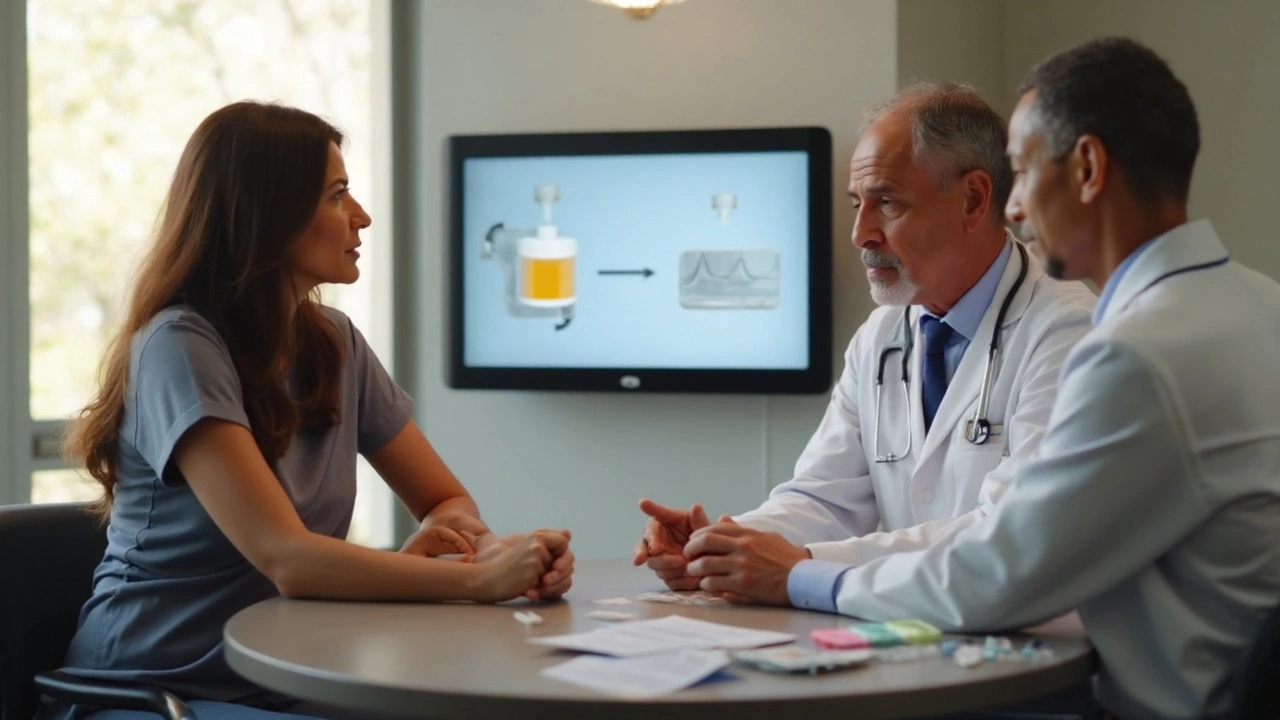Antiplatelet Therapy: What It Is and Why It Matters
Antiplatelet therapy is a set of medicines that keep your blood from forming clots that could block an artery. It’s the go‑to option after a heart attack, stent placement, or when you have a high risk of stroke. Think of platelets as tiny sticky cells – these drugs make them less likely to stick together.
If your doctor has put you on an antiplatelet, they’re trying to stop a dangerous clot before it ever forms. That simple idea drives a lot of the advice you’ll see below: take it exactly as prescribed, watch for bleeding, and keep a schedule you can stick to.
Common Antiplatelet Medications
The most familiar antiplatelet is low‑dose aspirin (usually 81 mg). It’s cheap, over‑the‑counter, and works for many people. Another big player is clopidogrel (brand name Plavix). It’s often used when aspirin alone isn’t enough or if you’re allergic to aspirin.
Other options include prasugrel (Effient) and ticagrelor (Brilinta). These tend to be stronger, so they’re usually reserved for people who’ve had a recent stent or a severe heart event. Your doctor will pick the drug based on your health history, other meds, and how well you tolerate the medicine.
How to Take Antiplatelet Drugs Safely
First, set a reminder. Most people take their antiplatelet once a day, at the same time, with or without food. If you forget a dose, take it as soon as you remember – unless it’s almost time for the next one, then just skip the missed one and continue the regular schedule.
Watch for signs of bleeding: unusual bruising, pink or blood‑filled stools, or coughing up blood. If any of those happen, call your doctor right away. Also, avoid NSAIDs like ibuprofen unless your doctor says it’s okay; they can raise the risk of stomach bleeding when combined with antiplatelets.
Alcohol can irritate the stomach, so keep drinking moderate. If you’re on blood thinners (like warfarin) along with an antiplatelet, your doctor will monitor you closely because the combined effect on bleeding can be strong.
Keep a list of all your medicines, including vitamins and supplements. Some herbal products (like ginkgo or high‑dose fish oil) can also affect clotting. Share this list with any new health provider.
Finally, don’t stop the drug on your own. Even if you feel fine, stopping suddenly can raise your risk of a clot within days. If you need a break for surgery or a procedure, your doctor will give a clear plan.
Following these steps helps you get the full benefit of antiplatelet therapy while keeping side effects low. Use a pill organizer, set phone alerts, and talk to your doctor about any concerns – that’s the easiest way to stay on track.
Ticlopidine’s Future in 2025: Safety, Use Cases, and P2Y12 Alternatives
Where ticlopidine stands in 2025: safety risks, limited roles, monitoring, and better P2Y12 options. Clear steps to switch, avoid harm, and plan patient care.
